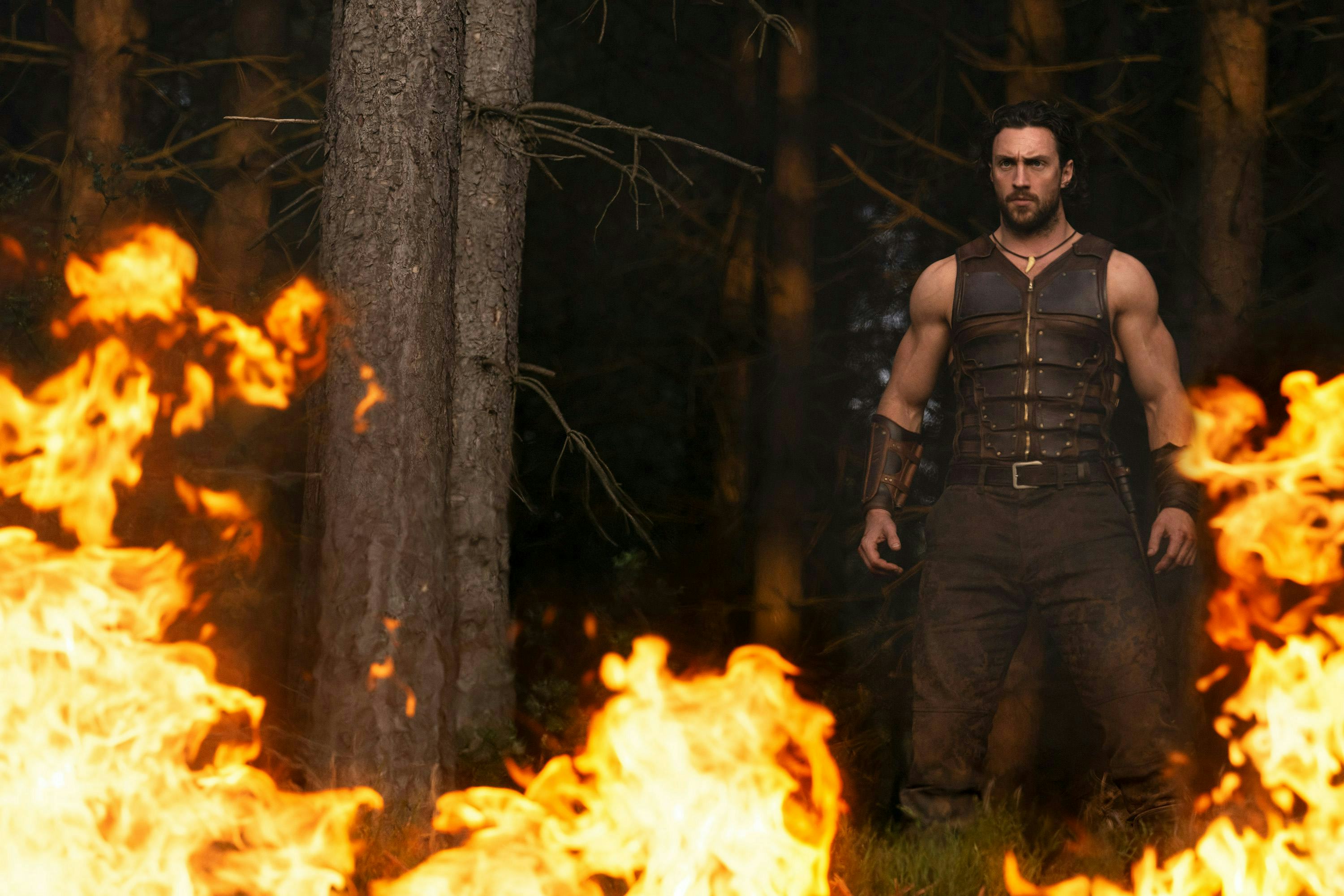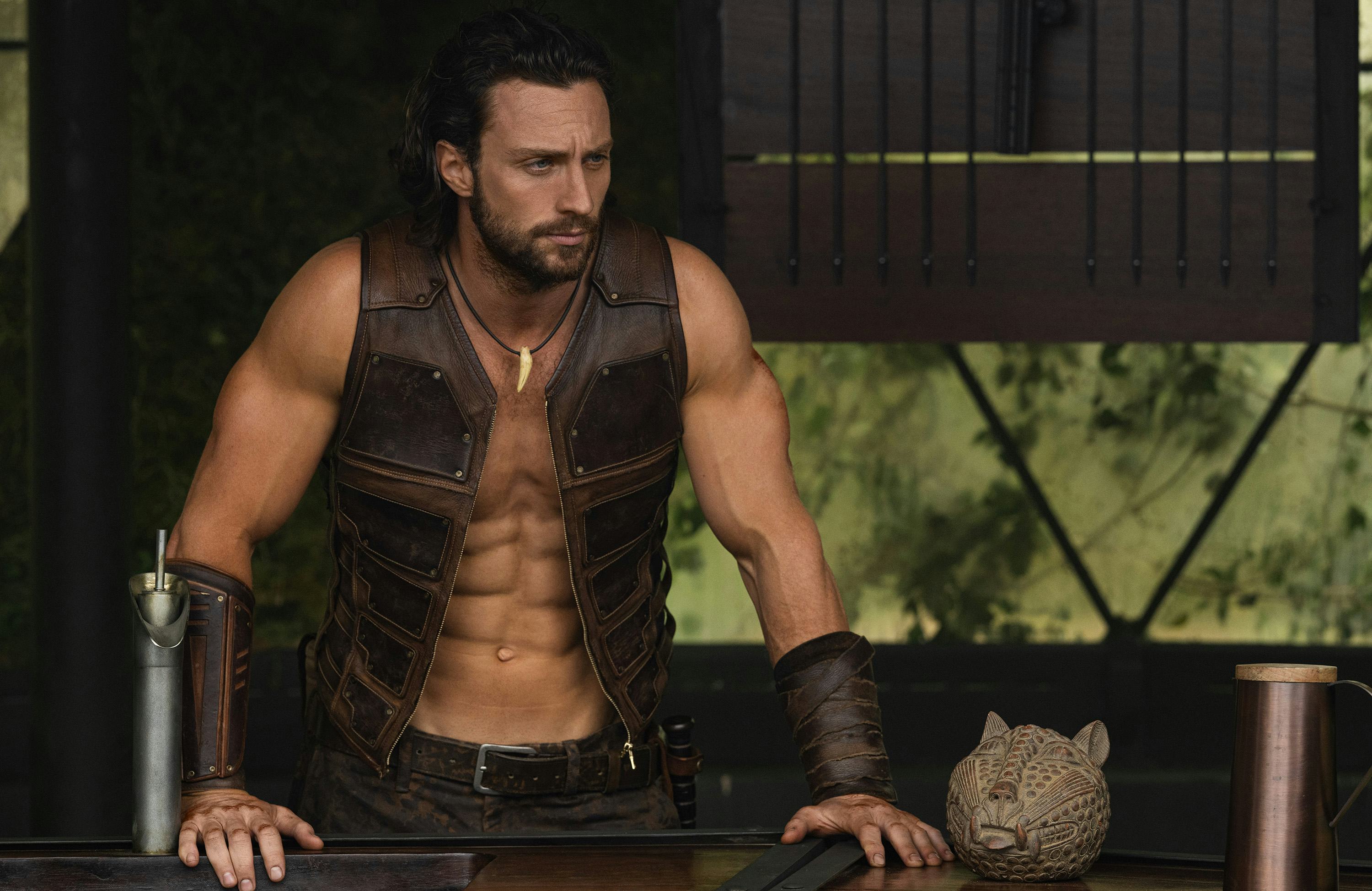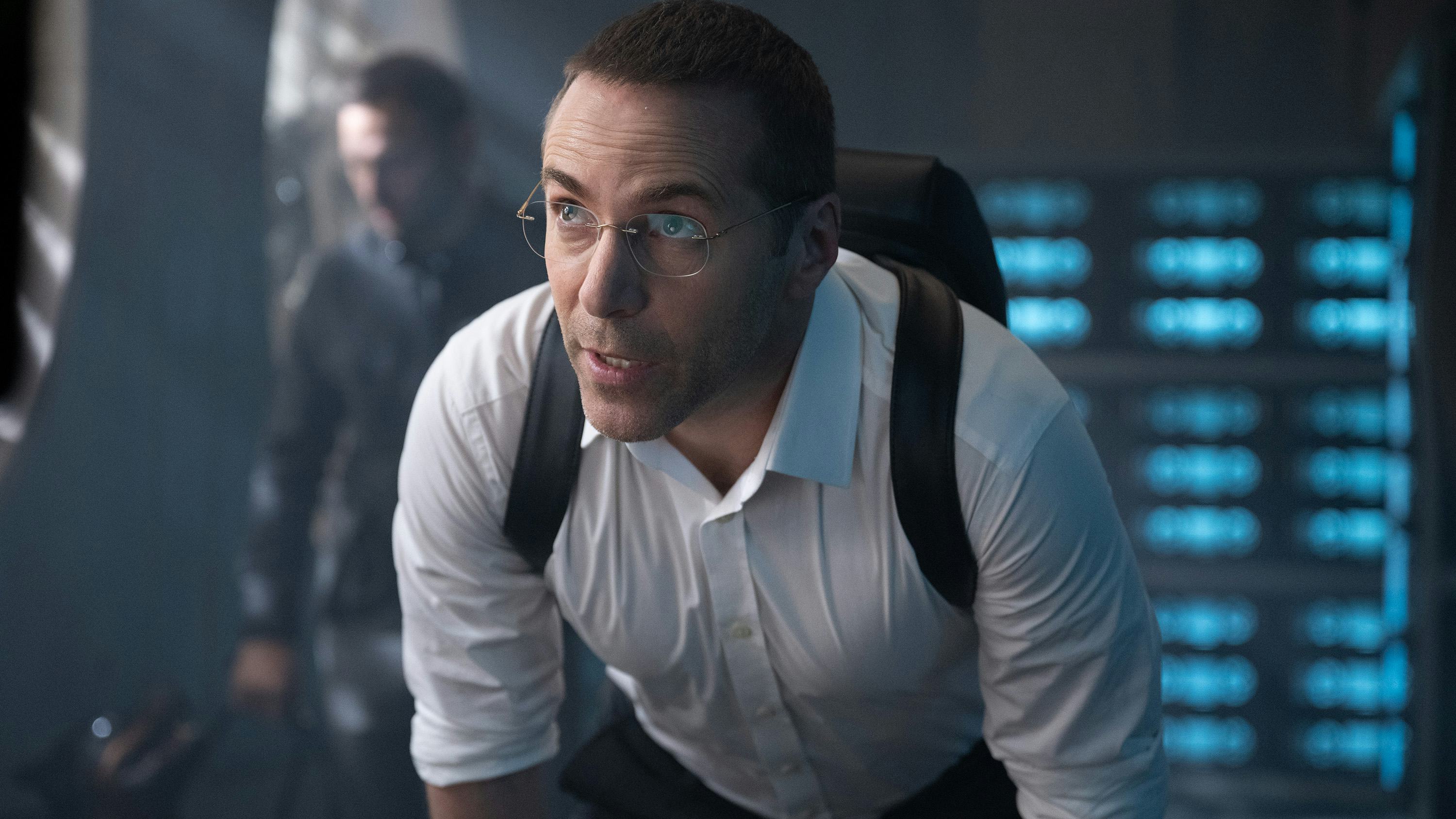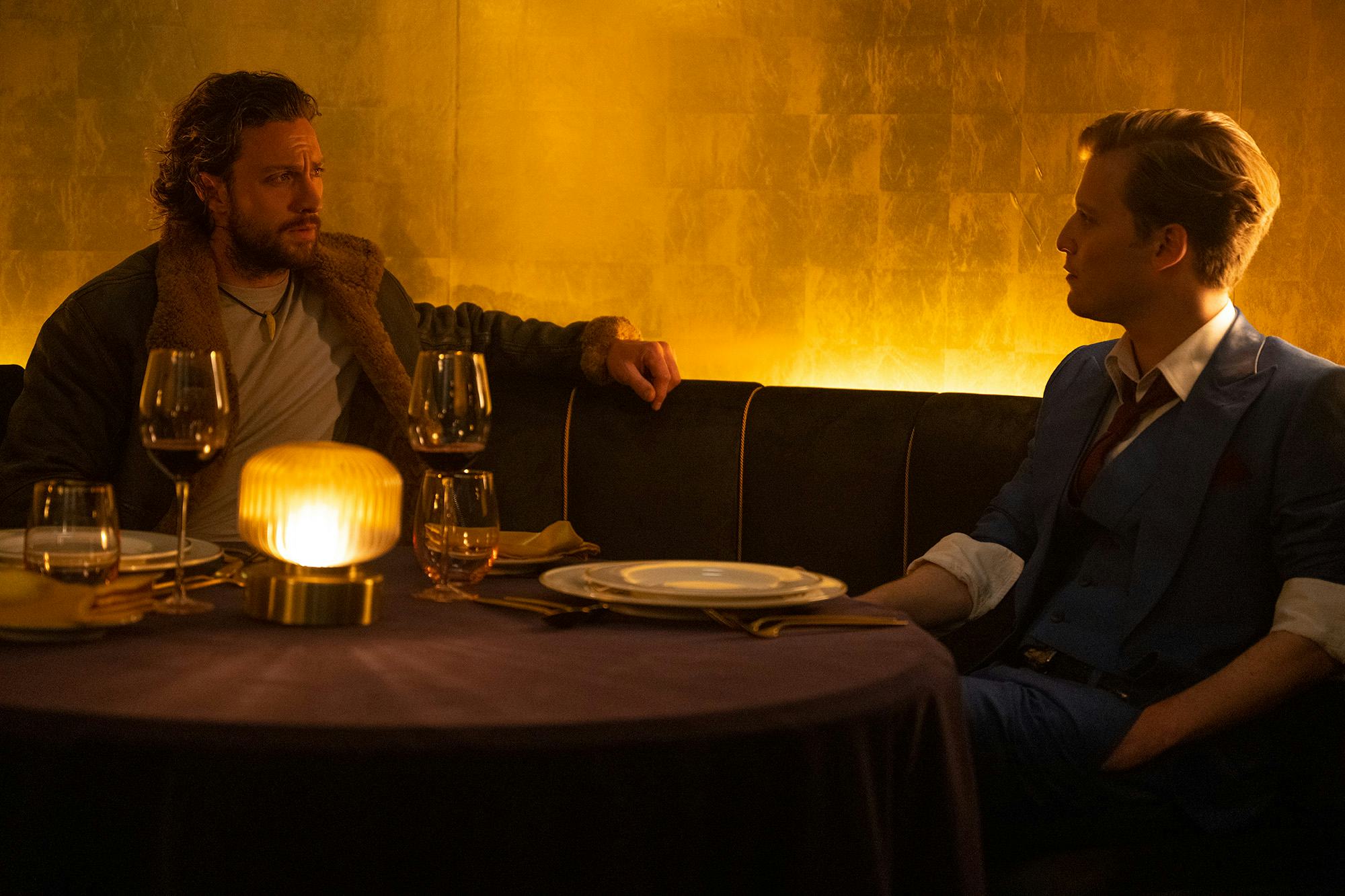
Is there anything left to say about Sony’s Spider-Verse? Never has a fall from grace felt so public, so painful, and so utterly preventable. Sony’s vice grip on the Spider-Man property, and its attempts to maintain it through watered-down superhero movies, is common knowledge at this point. But the studio’s cash grabs were easier to forgive when the memory of Venom — the film meant to set the tone for the Sonyverse — was fresher and more positive. Ten years later, every part of the Sonyverse just feels like an experiment gone wrong. It’s fitting, then, that the studio’s latest effort to reboot its Spider-Man franchise without the hero in question may also be its last.
Kraven the Hunter is no different from the other Sony films made “in association” with Marvel. While it gets some points for its R-rating, it falls prey to the same pitfalls as Madame Web, Morbius, and even the latest Venom movie. With the Sonyverse on its last legs, Kraven had its work cut out for it. There was no world where one film could save an entire franchise, especially one so chaotic as this. No movie is that good. And unfortunately, there’s not a lot of good in Kraven anyway.
A clunky, crowded script, muddy visual effects, and glaringly obvious ADR bog down a promising premise. It’s not camp enough to become a cult classic, and it lacks the conviction to carry its most ambitious ideas to the finish line. In a world where superhero fatigue makes competition all the tougher, it’s survival of the fittest — and it’s ironic that Kraven, of all properties, lacks that killer instinct.

Sony’s Spider-Man movies, while initially brilliant, were undone by a single flaw. The films seemed determined to cram every corner with a new villain, overwhelming poor Spidey (and the narrative) with competing, increasingly zany antagonists. It’s no different in Kraven, though one would think the absence of one hero would make it a bit easier to keep track of all the villainous goings on.
Like every project in Sony’s new Spider-Verse, though, Kraven aims to turn its eponymous baddie into a semi-altruistic anti-hero — which, for obvious reasons, doesn’t always work. Aaron Taylor-Johnson is no stranger to superhero fare, and his dark brooding act does lend the film a semblance of pathos. It’s easy to see why he was the perfect choice to play Sergei Kravinoff, the obsessive game hunter who stalks Spidey, his “ultimate prey,” in Marvel comics. In anyone else’s hands, and perhaps in a more conventional Spider-Man movie, his first outing might have been worth the hype. Here, though, he’s just another character treading water. Even with his name on the marquee, he still has to compete with an overwhelming number of antagonists. From his toxic dad (Russell Crowe) to a mysterious hitman with a vague vendetta (Christopher Abbott’s Foreigner), Kraven doesn’t leave a lot of room for, well... Kraven.
The Rhino (Alessandro Nivola) is technically our main villain here, though it takes a long time, and plenty of exposition, for him to emerge as a viable threat to the Kravinoff family. The film does start strong, introducing Sergei as he infiltrates a Russian prison to execute an evil mobster. By now, his reputation as “The Hunter” — a mercenary who takes down anyone from crooked kingpins to poachers and traffickers — precedes him. He’s known for his efficiency, his brutality, and (as his daring prison escape demonstrates) his impressive parkour skills. But you also get the sense that he’s doing all this to relieve the chip on his shoulder — and before you can say “it’s Kraven time,” director J. C. Chandor is taking us back to his troubled adolescence to add context to his tragic past.

If Kraven’s cold open established a strong foothold, the rest of its first act wastes little time tearing it all down. An extended flashback reintroduces us to Sergei (played here by Levi Miller) in his school days, as he attends a stuffy academy with his younger, soft-spoken brother Dimitri (Billy Barratt). Their lives change forever when their father Nikolai shows up out of the blue, pulls them from school, and informs them that their mother committed suicide. “She was weak,” he tells his sons without a second of hesitation. It’s not the last time he’ll deliver such a baffling statement: of all Kraven’s flaws, its heavy-handed script may be the biggest.
Somehow, though, Crowe manages to make it work. The actor brings the subtlety and gravity the story lacks, softening the blow of even the most head-scratching lines. It doesn’t hurt that he’s adopted yet another wild accent to deliver his lines, and though he sounds like a broken record touting age-old musings about masculinity and strength, he’s definitely a bright spot in Kraven.
If nothing else, Crowe’s performance offers plenty of context to Sergei’s current hangups. When he and Dimitri are whisked off on an African safari to hunt lions, Sergei is determined to shield his brother from their father’s influence. His love for Dimitri is the heart of Kraven the Hunter — the most coherent bits of the story are driven by their bond. Sergei notably earns his powers while protecting Dimitri from the very lion they’re hunting. Though he’s attacked and nearly left for dead, he’s saved with the help of a magic potion (yes, really) and a young girl named Calypso. He wakes up with super strength, speed, and hawk-like vision — and his new powers give him the courage to run away from home to tough it out in the wild. (He does have to abandon Dimitri to win his freedom, though, which definitely won’t come back to bite him later.)

For all its flaws, Kraven could potentially be the most esoteric of the Sonyverse films. That’s not a high bar to clear, but it does deserve some credit for trying to tap into the psyche of its anti-hero. Discussions about karma and causality inform Sergei’s journey as he embraces his role as Kraven, especially once the story resumes in present day. Though his last target was serving a life sentence in prison, his death leaves a power vacuum in London’s criminal underworld. That gives Aleksei Sytsevich (Nivola) the opportunity to launch the scheme he’s spent decades planning: taking over Nikolai’s empire. He also wants to take out Kraven, rightly assuming that his own criminal exploits have landed him on the hunter’s radar. Once he discovers that his potential challenger is also Nikolai’s son, he sees fit to kill two birds with one stone.
Aleksei’s first step is to kidnap Dimitri (Fred Hechinger), now all grown up but still cowardly in his father’s eyes. Of course, this is all a trap for Kraven, and he naturally falls right into it. The narrative feels its messiest when it has to juggle the motivations of so many characters, and it gets even more chaotic as Kraven reunites with Calypso (Ariana DeBose, whose performance here is at least 60% ADR) and gains another adversary in the Foreigner. The former is a smart addition on paper, as she becomes the sounding board for Kraven’s waning morality. But too often is she used to foreshadow events that comic book fans may be familiar with, like Kraven’s own demise.

Like Madame Web, Kraven is too concerned with the future to focus on the story that’s right in front of it. There are plenty of compelling moments in the film, particularly when Taylor-Johnson gets to go feral and take down goons with his bare hands. (The chase scene that sees Kraven running barefoot to catch up to a runaway van is a particular highlight.) Chandor shoots action with a visceral, kinetic eye: bones crunch, blood spurts, and arrows fly. Kraven also gains strength from its grounded emotional moments, like when Sergei fights to reconnect with his brother, or prove that he hasn’t become his father. Ironically, it’s the “superhero” moments — like the Foreigner’s baffling display of his hypnotic powers, or the Rhino’s ultimate transformation — that shoot this film in the foot.
It’s a disappointing turn for Sony, as its first Spider-Man films effectively made the genre what it is. That magic clearly never reached the new Sonyverse, and it’s frustrating to watch the studio’s misguided attempts to reclaim it. Sony had every chance to create a viable franchise, even if excluding Spider-Man felt counterintuitive. But after a decade of diminishing returns, the Sonyverse just doesn’t have what it takes to survive.







